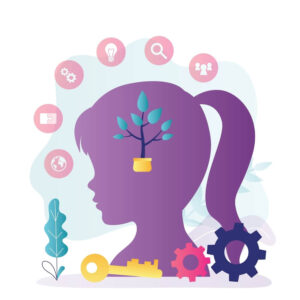7 Strategies To Develop Your Child’s Critical Thinking Skills
 |
As a parent, you want to make sure your child develops the skills necessary for success in life. One of those skills is critical thinking. Critical thinking allows your child to analyze, evaluate and synthesize information, which can be extremely helpful in making decisions and tackling tough problems. In this blog article, we’ll explore seven strategies that can help you foster your child’s critical thinking skills.
Introduction
Critical thinking is a skill that children need to develop in order to be successful in school and in life. There are many different strategies that parents and teachers can use to help children develop critical thinking skills.
Some of the different strategies that can be used to develop critical thinking skills include:
-Encouraging children to ask questions
-Helping children to identify problems and find solutions
-Teaching children how to make decisions
-Encouraging children to think creatively
-Providing opportunities for children to practice their critical thinking skills
Each child is unique and will learn best with different types of activities and experiences. Parents and teachers should experiment with different strategies until they find the ones that work best for their child or students.
What is Critical Thinking?
Critical thinking is the ability to think clearly and rationally, understanding the logical connection between ideas. It includes the ability to engage in reflective and independent thinking.
In order to think critically, we must be able to question information and arguments without allowing our emotions to cloud our judgment. We must also be able to recognize assumptions and evaluate evidence.
Critical thinking is not a new concept. It has been around for centuries. The ancient Greeks were some of the first to formalize critical thinking as a discipline with their Socratic Method.
Today, critical thinking is still taught using the Socratic Method in many schools across the United States. This method encourages students to ask questions and examine evidence in order to form their own opinions on a topic.
While critical thinking is important at any age, it is especially important for children as they are developing their own beliefs and worldviews. Helping your child develop their critical thinking skills will equip them with the tools they need to make reasoned decisions throughout their life.
How to Develop Your Child’s Critical Thinking Skills?
Critical thinking is a skill that children need to develop in order to be successful in school and in life. There are a number of ways you can help your child to develop their critical thinking skills.
One way to help your child develop their critical thinking skills is to encourage them to ask questions. When they are presented with new information, encourage them to ask questions about it. This will help them to think critically about what they are hearing and see things from different perspectives.
Another way to help your child develop their critical thinking skills is to have them solve problems. Give them opportunities to solve problems on their own or with others. This will help them to practice their problem-solving skills and think critically about the solutions they come up with.
Encourage your child to read, learn new things, and explore the world around them. The more they know, the better equipped they will be to think critically about the information they are presented with. Help them find reliable sources of information so that they can learn as much as possible.
Talk with your child about their thoughts and ideas. Listen carefully and try not to dismiss their ideas out of hand. Help them to explore their thoughts further and expand upon them. This will encourage critical thinking and help your child learn how to express themselves better.
Strategies for Developing Critical Thinking Skills
There is no single answer to the question of how to develop critical thinking skills. However, there are a number of strategies that can be employed to help children develop this important skill.
One strategy is to encourage children to ask questions. When presented with a problem or situation, encourage them to ask questions about it. What is happening? Why is it happening? What could happen next? Asking questions helps children to think critically about what they are observing and to come up with their own explanations for what they are seeing.
Another strategy is to provide children with opportunities to practice making decisions. This can be done through simple games or activities where they have to make choices. For example, you might give them two different options and ask them which one they would prefer. As they get older and more confident in their ability to think critically, you can start giving them more complex decisions to make.
Finally, it is also important to model critical thinking for children. When you are faced with a problem or decision yourself, take the time to explain your thought process out loud. This will help children understand that there is more than one way to approach a problem and that sometimes the best solution isn’t always obvious at first glance.
1. Teach Problem Solving
There is no one answer or silver bullet to teaching problem solving, but there are a few key strategies that can help. One of the most important things you can do is to model problem solving for your child. When you face a challenging situation, talk through your thought process out loud. This will help your child understand how to approach and solve problems.
In addition, you can encourage your child to ask questions. Asking questions is an important part of critical thinking. Help them practice by coming up with some open-ended questions together, such as “What do you think would happen if…?” Finally, provide opportunities for your child to practice problem solving in a safe and supportive environment. This could be through puzzles, games, or other creative activities.
2. Ask Questions and Encourage Curiosity
If you want to develop your child’s critical thinking skills, one of the best things you can do is encourage them to ask questions. When they’re curious about something, encourage them to explore it further and ask more questions. Help them to see that there are usually multiple ways to look at any given issue, and encourage them to consider all the options before making a decision. By doing this, you’ll be helping your child develop the ability to think critically about any issue they encounter.
3. Foster Creative Thinking
As parents, we often think of critical thinking in relation to problem-solving and decision-making. However, critical thinking is also a vital component of creativity. When children are encouraged to think creatively, they are able to come up with original ideas and solutions to problems.
There are a number of ways you can foster creative thinking in your child. One way is to provide opportunities for them to explore and experiment. This could involve setting up a simple science experiment, or giving them some art supplies and letting them create something new. It’s also important to encourage your child to ask questions and think about what they’re doing – this will help them to develop their own ideas and hypotheses.
Another way to encourage creative thinking is through imaginative play. This could be something as simple as making up stories together, or playing pretend games. Imagination allows children to explore different worlds and scenarios, which can help them to develop their own ideas and understanding of the world around them.
Finally, it’s important to encourage your child to take risks and try new things. This could involve trying out a new activity or sport, or simply trying something different at mealtime. Encouraging your child to step outside of their comfort zone will help them to develop confidence and learn new skills – both of which are essential for creative thinking.
4. Expose Your Child to Different Perspectives
From a young age, it’s important to expose your child to different perspectives. This can be done in a number of ways, such as reading them stories from other cultures, taking them to different places and talking to them about people with different backgrounds and opinions.
This will help your child to understand that there can be more than one way to look at any given situation. It’s a valuable skill that will stand them in good stead throughout their life.
5. Provide Opportunities for Experimentation and Exploration
It is important to provide opportunities for your child to experiment and explore. This will help them to develop their critical thinking skills.
One way to provide opportunities for experimentation and exploration is to set up a dedicated space in your home for your child to play and explore. This could be a corner of a room or an area in the yard. Make sure that there are plenty of safe materials available for your child to use. Encourage them to try new things and see what happens.
Another way to provide opportunities for experimentation and exploration is to take your child on field trips. Visit places like the zoo, the museum, or the park. Let your child explore and ask questions. Again, encourage them to try new things and see what happens.
Providing opportunities for experimentation and exploration will help your child to develop their critical thinking skills. These skills are important for success in school and in life.
6. Encourage Self-Reflection
One of the best ways to encourage critical thinking in children is to encourage them to reflect on their own thoughts and actions. This can be done through asking questions, providing opportunities for them to explain their thinking, and giving feedback.
Asking questions is a great way to get children thinking critically about what they are doing. For instance, you could ask them why they think a certain way about something or what they would do differently if they were in a different situation. Providing opportunities for children to explain their thinking also allows them to practice critical thinking skills. And finally, giving feedback helps children understand how their thinking affects others and the world around them.
7. Model Critical Thinking
One of the most important skills that children can learn is how to think critically. This skill will help them in every aspect of their lives, from school to their future careers. There are a few strategies that you can use to help your child develop their critical thinking skills.
One way to help your child think critically is to encourage them to ask questions. When they are presented with a problem, encourage them to ask themselves what they could do to solve it. This will help them start to think about different solutions and evaluate which one would be the best.
Another strategy is to have your child brainstorm with you. When you are presented with a problem, sit down with your child and brainstorm different solutions together. This will not only help your child come up with ideas, but it will also help them learn how to consider other people’s opinions and ideas.
Finally, it is important to encourage your child to practice looking at both sides of an issue. When they are discussing something with you or their friends, encourage them to think about what the other person’s point of view might be. This will help them learn how to see both sides of an issue and make more informed decisions.
Conclusion
Developing your child’s critical thinking skills is a great way to help them build effective problem-solving skills for the future. By introducing these seven strategies, you can provide your children with the tools and confidence they need to become successful learners. With practice and patience, your children will be able to think more critically, form opinions of their own, and make decisions based on logical reasoning instead of emotion. All that said, it’s important not forget that each child learns differently so don’t forget to tailor any advice or activities accordingly!
